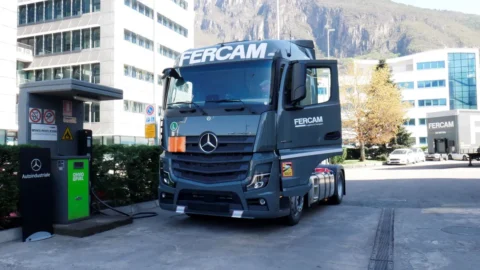The Italian maritime economy and environmental protection have not yet reached an acceptable degree of maturity. The turnover that revolves around boating, shipping and commercial activities have only recently discovered the advantages of typified circular systems. They start to. appreciate the intelligent use of resources of energy sources and savings. Rethinking the sector in an aggregate way with defined objectives is what it has been promising to do for a few days, the Blue Economy Hub. It is promoted by the H2biz Group and Lauro Holding to try to redeem a sector deeply rooted in our industrial system in a sustainable way. For now it is a project in progress, but it has the ambition of wanting to restructure the entire maritime chain
Ships remain the main vehicle of international trade. The 90% of the goods travel by sea and uses non-green fuels. Seaside cities are affected, the impacts on the ecosystem are serious and are often denounced by the local administrators themselves. According to SRM, the Intesa Sanpaolo Study Center, naval logistics is worth 12% of world GDP. Blue Economy wants to aggregate the suppliers of the sea ecosystem but without neglecting the financial opportunities of the Italian Resilience Plan. The two partners have long histories behind them, both in the field of services and maritime traffic. So the two managers Luigi De Falco (H2biz) and Salvatore Lauro (Lauro Holding) have thought of "a container of planning that can systematize the ever-increasing convergence between the maritime sector and that of energy and the environment." Both managers know that the government is working on the eco-sustainable renovation of Italian airports. 112 million euros are being invested in Naples, Bari, Trieste and Barletta to increase functionality and efficiency.
The new Hub was designed to seize market opportunities and is made up of qualified suppliers. H2biz, moreover, already manages other hubs that provide services to businesses. Those linked to the sea remain strategic in the transition to a sustainable economy and therefore are in the field with all their potential. Thinking of facing the future with obsolete structures and organizations, in fact, it means putting more at risk 206 billion euros of turnover. It should be noted that in the first three months of this year import-export by sea recorded a +3% after a disastrous 2020. The attention of the shipping companies is concentrated on the ports of the South which "with 207 million tons of goods managed in 2020 account for 47% of the total Italian traffic". The name Lauro has historical roots in Naples and Campania. One more reason for the new sustainable hub to have the initial drive for success in the South.





